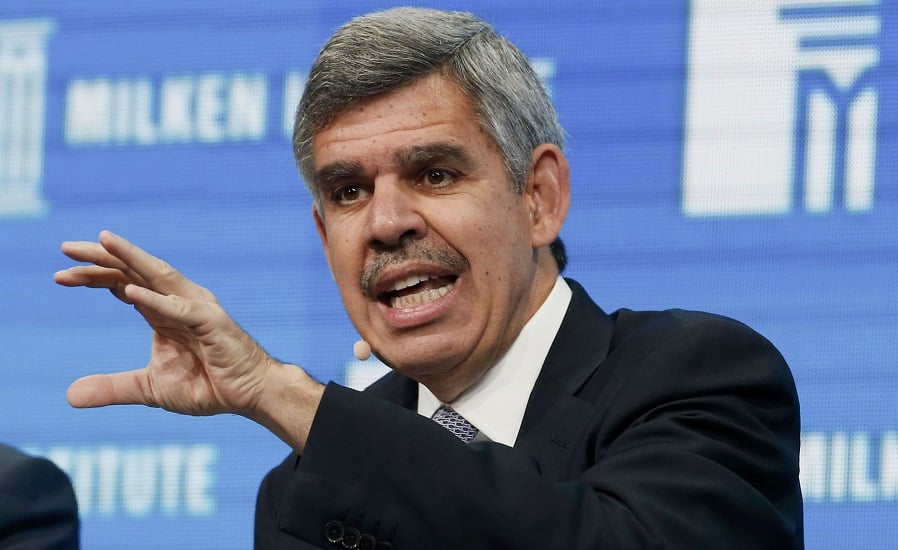There's a common element between present-day headline news items, such as the upcoming Brexit referendum, accusations of the Federal Reserve
being inconsistent, the rise of negative nominal interest rates and “strange politics,” according to Allianz chief economic adviser Mohamed El-Erian.
That commonality, he said, is “advanced economies' inability to grow in an inclusive manner.”
“If you run sophisticated market economies at low growth for a long time, and if the benefits of that growth go to a small segment of that population, strange things start to happen,” Mr. El-Erian said Monday at a media briefing in New York City.
“And we ain't seen anything yet. It's going to get more and more strange [if it continues],” he added.
A year and a half ago, the possibility of Britain leaving the European Union (
the so-called “Brexit”), Donald Trump being the
presumptive Republican nominee for the U.S. presidency and the fairly broad
uptake of negative-interest-rate policy would have been “deemed to be either improbable or unthinkable,” according to Mr. El-Erian, former chief executive at Pacific Investment Management Co. (
PIMCO).
The U.S. Fed failed to raise benchmark interest rates last week, signaling it plans to raise rates twice in 2016 but
slow economic growth would restrain its monetary policy tightening going forward.
Major economies are stuck in a low-growth environment for a few reasons, Mr. El-Erian said. It took policymakers a long time to realize low growth is a “secular and structural” rather than cyclical issue; low growth leads to “messy” politics, which contaminates good economic policy; and there's been an overreliance on central banks.
But a collective bad romance of sorts led to low economic growth in the first place, with countries embracing the finance industry as an agent of growth rather than “basic elements” such as infrastructure investment, corporate-debt reform and labor-market reform, Mr. El-Erian said.
“With the exception of Germany, very few countries did any of this in the last 15 years,” said Mr. El-Erian. “We're over-dependent on finance … We collectively romanced the wrong growth model.”
He pointed to huge reductions in barriers to entry in the financial market, such as buying a house in the U.S. without income verification. A fundamental innovation in the financial markets — securitization — led to overproduction and overconsumption, he said.
Similarly, China is currently dealing with an equity-market bubble. Policymakers thought broad ownership of the equity market was a social good, a similar mindset to those in the U.S. who thought the same of home ownership, because it gave more Chinese a bigger stake in market-based reforms; however, they overdid it, and are now trying to undo it, Mr. El-Erian said.
Perhaps frustratingly, Mr. El-Erian offered three broad views on potential outcomes of low growth, but couldn't commit to the probability of one over another: maintaining the status quo, being on the cusp of turning the corner for the better, or being on the cusp of recession and genuine instability.
“The evidence suggests it's actually not predestined in any way,” according to Mr. El-Erian.







